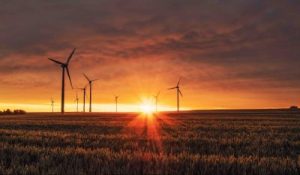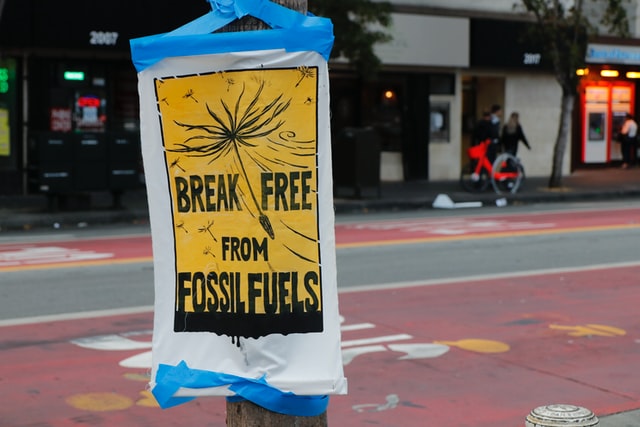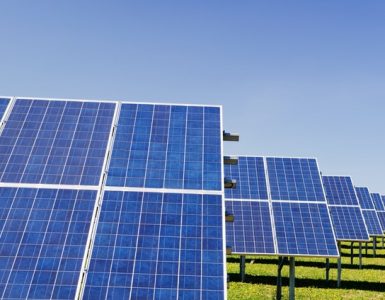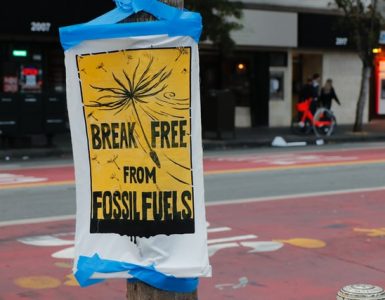The world’s fifth largest economy, with over 1.4 billion people, India is on a relentless quest for energy needs.
The country’s energy consumption is projected to increase significantly in the next 5-6 years, from 5.4 million barrels per day to an anticipated 7 million barrels per day by 2030.

Most of India’s energy supply comes from imports —nearly 85 per cent of its crude oil — making the country highly vulnerable to global oil price fluctuations and geopolitical tensions.
Economic growth in India has been among the highest in the world over the past two decades, therefore energy demands will continue to rise.
India is a major contributor to global energy consumption, with projections indicating that 25 per cent of the increase in global energy demand over the next two decades will originate from India alone.
Given the challenges of climate change, the problems associated with rising energy demands from fossil fuels are further exacerbated. Urgent steps are necessary to find India’s energy alternative solutions that are self-dependent, renewable and environment-friendly.
Many alternative clean energy solutions have emerged as a beacon of hope.
Electric vehciles (EVs) are probably the number one energy alternative being worked on to reduce fossil fuel consumption. However, at the rate at which India’s EV penetration is growing, it will take many more years before it can make a considerable dent in the energy mix.
Though the Government of India has set an ambitious target of 30 per cent EV penetration by 2030, overall EV penetration in the country in FY24 has only reached 6.8 per cent against 5.3 per cent in FY23.
To promote electric mobility in India, in September 2024, the Government approved a new scheme called ‘PM Electric Drive Revolution in Innovative Vehicle Enhancement (PM E-DRIVE).
Another step that the Indian government has taken to reduce its dependence on fossil fuels, is the gradual reduction in subsidies. Since 2010, India has steadily reformed its fossil fuel subsidies which collectively reduced fiscal subsidies in the oil and gas sector by 85%, from a peak of $25 billion in 2013 to $3.5 billion by 2023.
Further, the Government of India implemented a cess on coal production and imports to finance clean energy initiatives. Approximately 30% of the collections from this cess were allocated to a national clean energy and environment fund, supporting various clean energy projects and research.
Other energy alternatives being extensively promoted are biofuels, which the government actively want to use to reduce the nation’s dependence on fossil fuels.
Compared to EV, India has made considerable progress in ethanol blending, which has surged from just 1.53 per cent in 2013-14 to 16 per cent today. This achievement has prompted the government to advance its blending target of 20 per cent from 2030 to 2025.
The government is also developing a roadmap for sustainable energy solutions beyond the 20 per cent blending target, indicating a forward-thinking strategy that anticipates future energy needs.
When compared to fossil fuels, biofuels produce fewer greenhouse gas (GHG) emissions during combustion, contributing to a decrease in the overall carbon footprint.
Biofuels offer a reliable alternative to reduce dependency on imported fossil fuels, providing an indigenous source of energy. With a consistent supply of raw materials like sugarcane and other food crops, India can produce biofuels locally, ensuring self-reliance and a predictable energy supply.
A major initiative in India’s endeavour toward a clean energy transition is green hydrogen. In January 2023, the Indian government launched the National Green Hydrogen Mission, with an outlay of Rs. 19,744 crores (~US$2.1 billion) up to FY 2029-30.
Through this Green Hydrogen Mission, the government has pinned hopes that it will lead to significant decarbonization of the economy, reduce dependence on fossil fuel imports, and enable the country to assume technology and market leadership in Green Hydrogen.
Post this, the government has taken a series of measures to make India a global hub for green hydrogen production and exports. The country has set a target to produce 5 million metric tonnes of green hydrogen by 2030, supported by 125 GW of renewable energy capacity.
India’s solar ambitions are also growing at a steady pace, the current installed solar capacity is 200 GW, moving towards its broader goal of 500 GW of renewable energy capacity by 2030.
The country is already running hydrogen-powered buses on a trial basis in some cities. These initiatives reflect a broader vision for sustainable transport solutions that can provide clean energy alternatives.
Wrapping Up
The adoption of all these energy alternative solutions in India presents a complex mix of benefits and challenges.
To ensure that benefits justify the environmental, economic, and non-economic costs, a balanced approach is essential. Additionally, continuous innovation and supportive policies are crucial to realizing the full potential of new energy alternatives.
By transitioning to new and greener energy sources, India can create multiple job opportunities across all sectors of the economy and thus contribute to overall sustainable development and economic prosperity.






Add comment